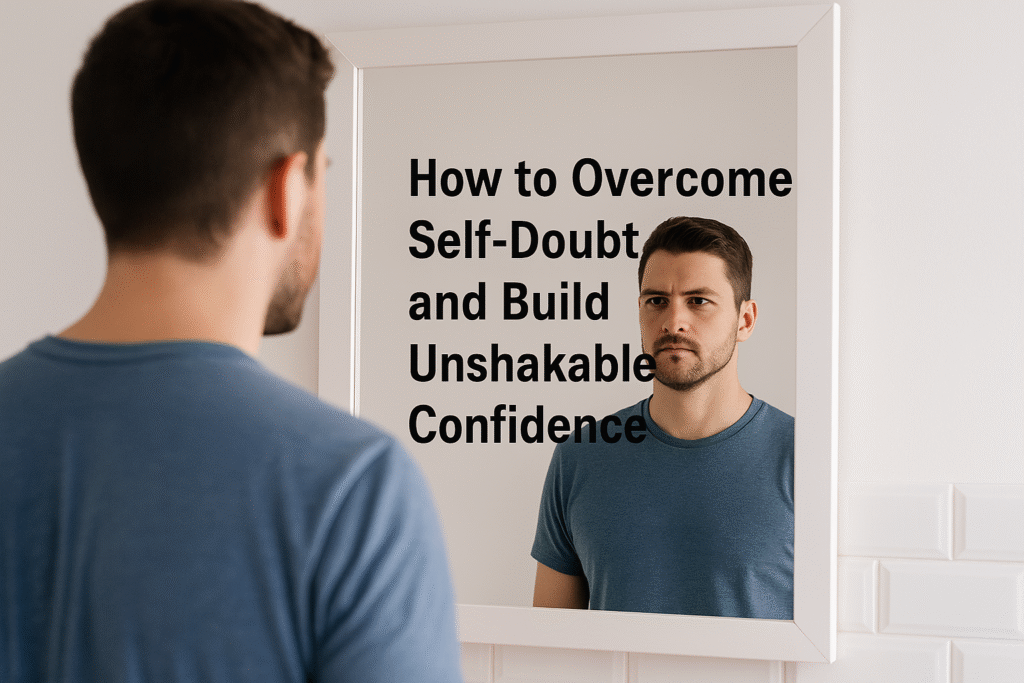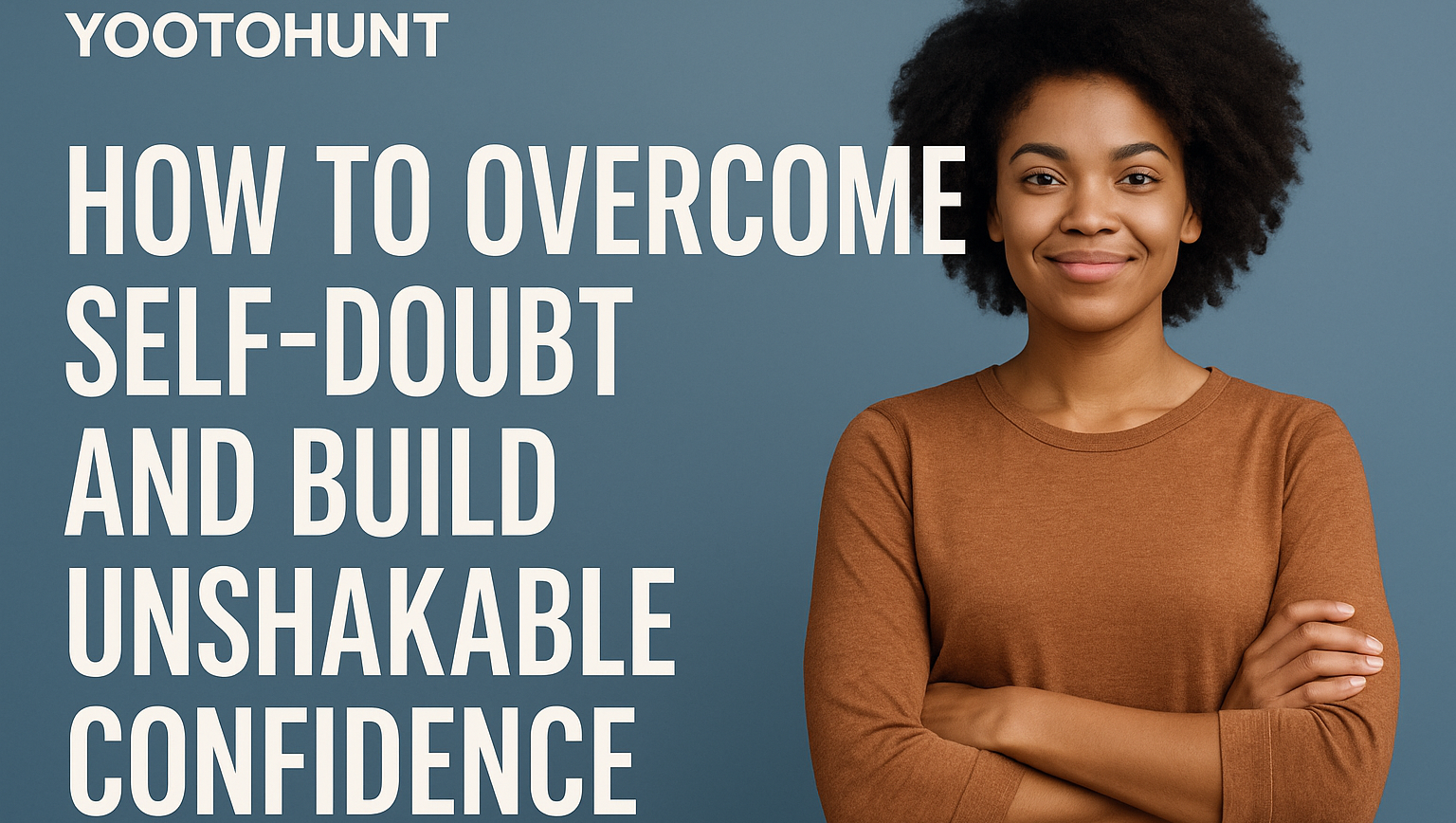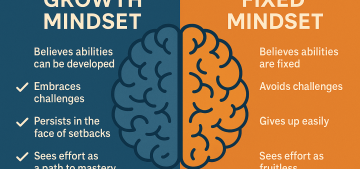The Silent Enemy of Self-Belief
Everyone faces moments of doubt. That quiet voice in your head whispering, “You’re not good enough.”
For some, it’s fleeting. For others, it becomes a constant companion, limiting their potential.
But here’s the truth — confidence isn’t something you’re born with. It’s something you build.
And overcoming self-doubt is the first step toward creating a confident, resilient, and fulfilled version of yourself.
What Is Self-Doubt and Why It Holds You Back
Self-doubt is a lack of trust in your abilities, often fueled by fear of failure or comparison to others.
It’s your brain’s misguided attempt to protect you from rejection or embarrassment — but in doing so, it holds you back from growth.
Understanding the Root Causes of Self-Doubt
Perfectionism: Believing you must be flawless before taking action.
Past Failures: Allowing one setback to define your future potential.
Comparison Culture: Constantly measuring your worth against others.
The Science Behind Confidence and the Brain
Confidence triggers a positive feedback loop in the brain. When you act bravely, dopamine rewards your courage — reinforcing belief in your ability to act again.

The Hidden Costs of Living with Self-Doubt
Paralysis by Analysis: When Overthinking Becomes a Habit
Overthinking leads to hesitation. Hesitation leads to inaction. And inaction strengthens self-doubt.
The Confidence Gap Between Thinking and Doing
Research shows people often underestimate their competence. True confidence grows after you take action — not before.
7 Proven Strategies to Overcome Self-Doubt
1. Challenge Negative Self-Talk
Catch your inner critic in the act. Replace “I can’t do this” with “I’m learning how to do this.”
2. Embrace Failure as Feedback
Failure isn’t final — it’s information. Every misstep teaches you something valuable.
3. Take Small, Consistent Actions
Start with micro-goals. Every small win becomes evidence that you’re capable.
4. Surround Yourself with Supportive People
Confidence is contagious. Build relationships with people who uplift and inspire.
5. Practice Self-Compassion and Mindfulness
Forgive yourself for mistakes. Be your own ally, not your enemy.
6. Visualize Success and Positive Outcomes
Visualization rewires your brain for confidence — picture yourself winning.
7. Keep a Confidence Journal
Write down daily achievements, compliments, and moments of courage. You’ll see how capable you already are.

Building Unshakable Confidence: The Inner Game
Confidence vs. Arrogance: Knowing the Difference
Confidence says, “I can do it.” Arrogance says, “Only I can do it.”
Real confidence comes from inner peace, not superiority.
How to Maintain Confidence Under Pressure
Breathe deeply, ground yourself, and focus on effort, not outcome.
Pressure reveals preparation — not perfection.
The Power of Authenticity in Confidence
You don’t have to imitate others. True confidence grows when you embrace your individuality.
Real-Life Stories of People Who Beat Self-Doubt
J.K. Rowling: From Rejection to Literary Legend
Twelve publishers rejected Harry Potter. She believed anyway — and changed history.
Michael Jordan: Turning Failure into Fuel
Cut from his high school team, he transformed rejection into motivation to become the greatest athlete of his era.

Common Myths About Confidence
“Confidence means you never doubt yourself.”
False. Confident people doubt — but they act anyway.“You’re born confident.”
No one is. Confidence is a skill built through repetition and reflection.“Confidence comes from success.”
Actually, it’s the other way around — success comes from confidence.
FAQs About Self-Doubt and Confidence
Q1: How long does it take to build confidence?
A: With consistent effort, noticeable change can happen in 30–60 days.
Q2: Can confidence be lost?
A: It fluctuates — but once built consciously, it’s easier to rebuild.
Q3: How can I stop comparing myself to others?
A: Focus on progress over perfection — compare yourself only to your past self.
Q4: Is self-doubt ever good?
A: Healthy doubt keeps you humble and open to growth.
Q5: How can I build confidence at work?
A: Take initiative on small tasks, share your ideas, and track achievements weekly.
Conclusion: Becoming the Author of Your Own Belief Story
Confidence doesn’t mean you never fall — it means you rise every time you do.
Overcoming self-doubt isn’t about silencing fear, but learning to walk with it.
When you start acting as if you already are confident, your brain — and life — eventually follow suit.






